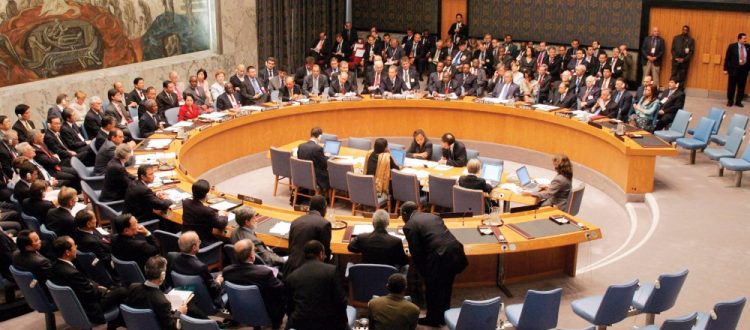Education for global citizenship
Education for Global Citizenship is part of a long-term process to build the defenses of peace in the minds of women and men. The Constitution of UNESCO states “Since wars begin in the minds of men, it is in the minds of men that the defenses of peace must be constructed.”
| Suggested Reading | Conflict Background | GCCT |
By René Wadlow
The United Nations Educational, Scientific, and Cultural Organization (UNESCO) has taken a lead in Education for Global Citizenship, starting in 2013 with the UNESCO Forum of Global Citizenship Education. Global Citizenship refers to a sense of belonging to the broader community of humanity. Global Citizenship emphasizes political, economic, social, and cultural interconnectedness between the local, the national, and the global. Education for Global Citizenship aims to develop an education based on creative and critical thinking that enables all people to contribute actively to political and development processes in a complex global society.
While it is important that Global Citizenship Education be implemented in the school system at all levels, Global Citizenship must also be carried out by those who are not directly part of the school programs such as nongovernmental organizations (NGOs). Thus, the United Nations Department of Public Information’s yearly conference for NGOs in 2016 was devoted to Education for Global Citizenship. The conference was held in the city of Gyeongju which had been the first capital in 900 AD of a unified Korea. The conference was able to draw on a larger-than-usual Asian NGOs.
The Association of World Citizens (AWC) which supports fully the Global Citizenship Education process was able to play an active role and continues its efforts.
Education for Global Citizenship is an essential strategy to address global challenges as well as to promote gender equality, facilitate the eradication of poverty and hunger, build skills, eliminate corruption, and prevent violence. Education for Global Citizenship promotes truly sustainable production and consumption, mitigating climate change and its effects, protecting our waters and biodiversity.
The AWC stresses that Education for Global Citizenship needs to highlight the importance of the human spirit in educational philosophy and practice. World Citizens hold that there are inter-acting dimensions of existence from the physical to the mental and to the dimension of the spirit. Education should consider all these dimensions and not just the physical and mental which is today the focus of most education systems.
We are still at an early stage in the creation of an Education for Global Citizenship. [1] Education for Global Citizenship is part of a long-term process to build the defenses of peace in the minds of women and men. The Constitution of UNESCO states “Since wars begin in the minds of men, it is in the minds of men that the defenses of peace must be constructed.”
Education for Global Citizenship often means changing deep-set attitudes and behavior. Yet there is much on which we can build. There is a rich body of knowledge and experience which helps students gain in self-confidence and harmony within themselves, harmony with Nature and harmony with their fellow humans.
Education for Global Citizenship requires a comprehensive system of education and training for all groups of people at all age levels, both formal and non-formal education. This is a process of awakening a sense of responsibility for the destiny of humanity as a whole.
The AWC stresses that our oneness with humanity and our acceptance of the whole planet as our home involves a process of change both in the attitudes of individuals and in the politics of States. Humanity is clearly moving towards participation in the emerging World Society. An awareness of the emerging World Society and preparation for full and active participation in this World Society is a necessary element of Education for Global Citizenship at all levels from primary schools though university and adult education.
The AWC highlights that a World Citizen is one:
- Aware of the wider world and has a sense of his role as a world citizen;
- Respects and values diversity;
- Has an understanding of how the world works economically, politically, socially, and culturally, and is willing to act to make the world a more equitable and sustainable place;
- Participates in and contributes to the community at a range of levels from the local to the global.
Prof. René Wadlow is President of the Association of World Citizens.
- See Luis Cabrera. The Practice of Global Citizenship (Cambridge University Press, 2016)
The views expressed in this article do not necessarily reflect the views of TransConflict.
Interested in writing for TransConflict? Contact us now by clicking here!



















